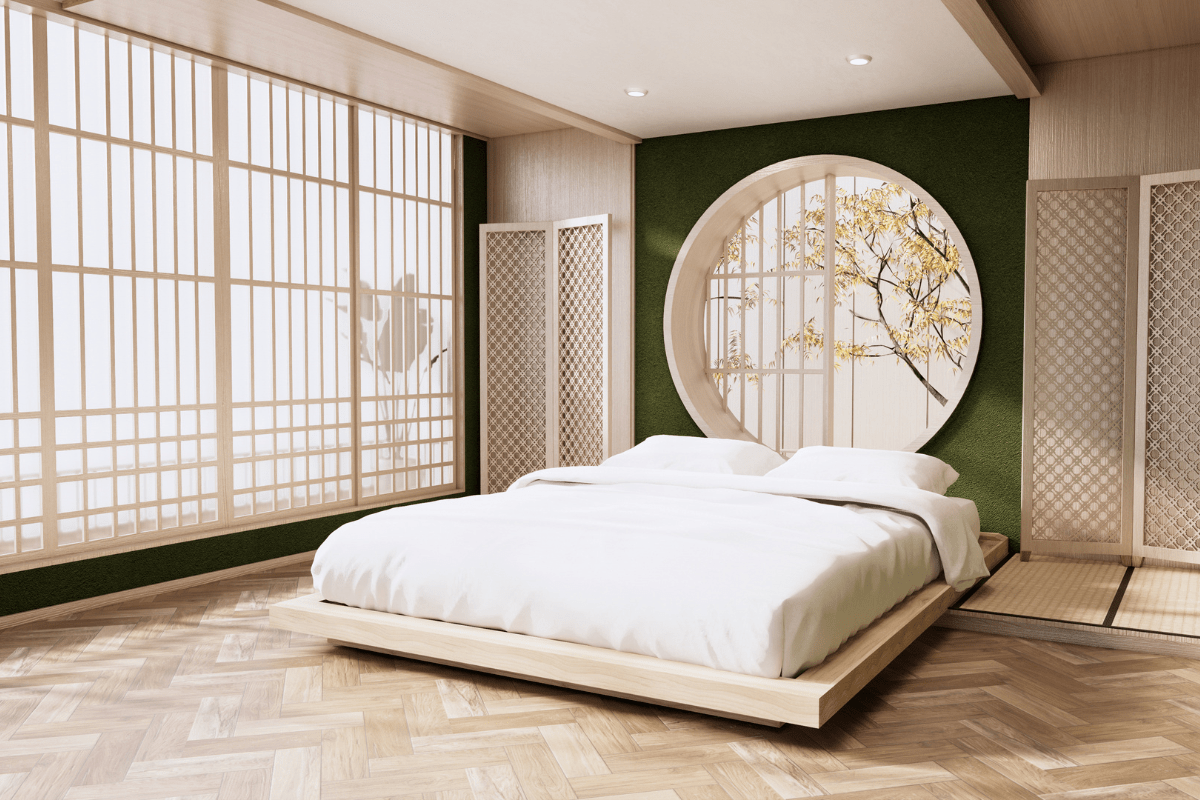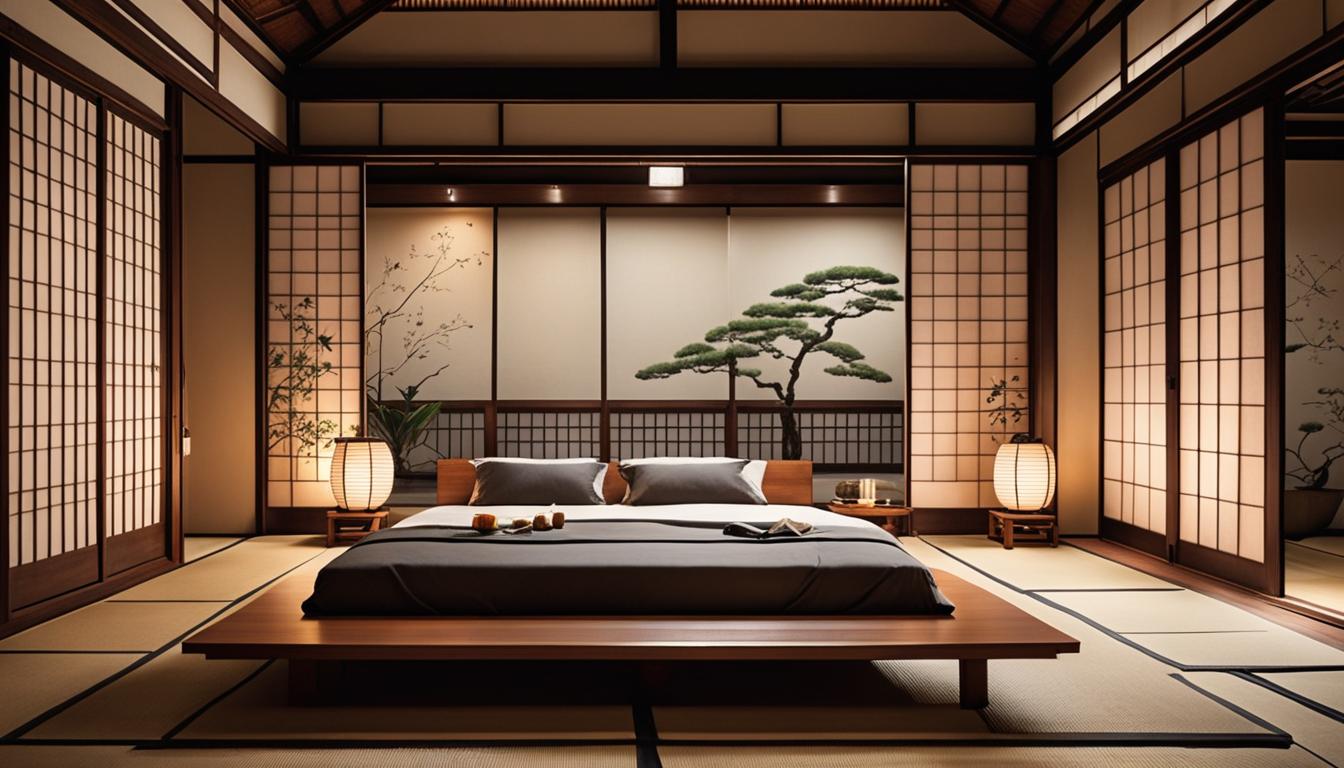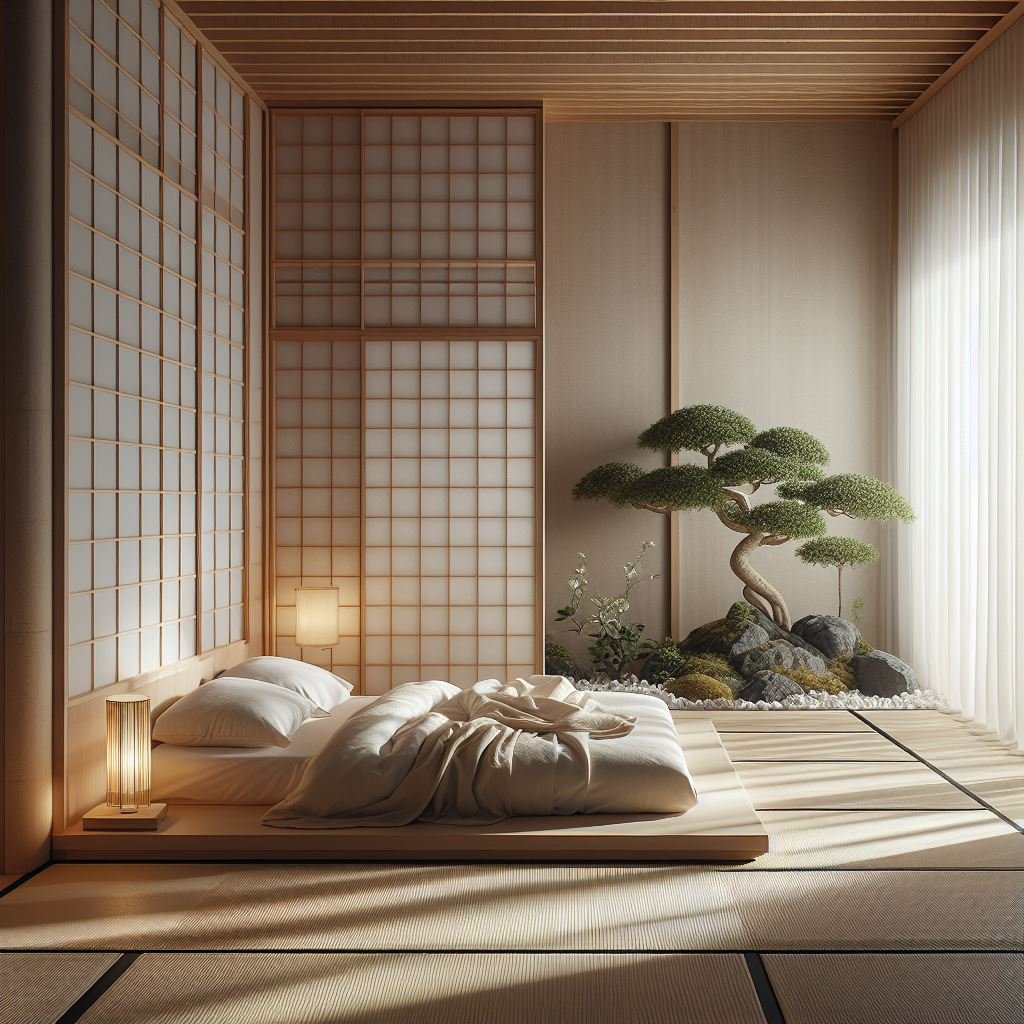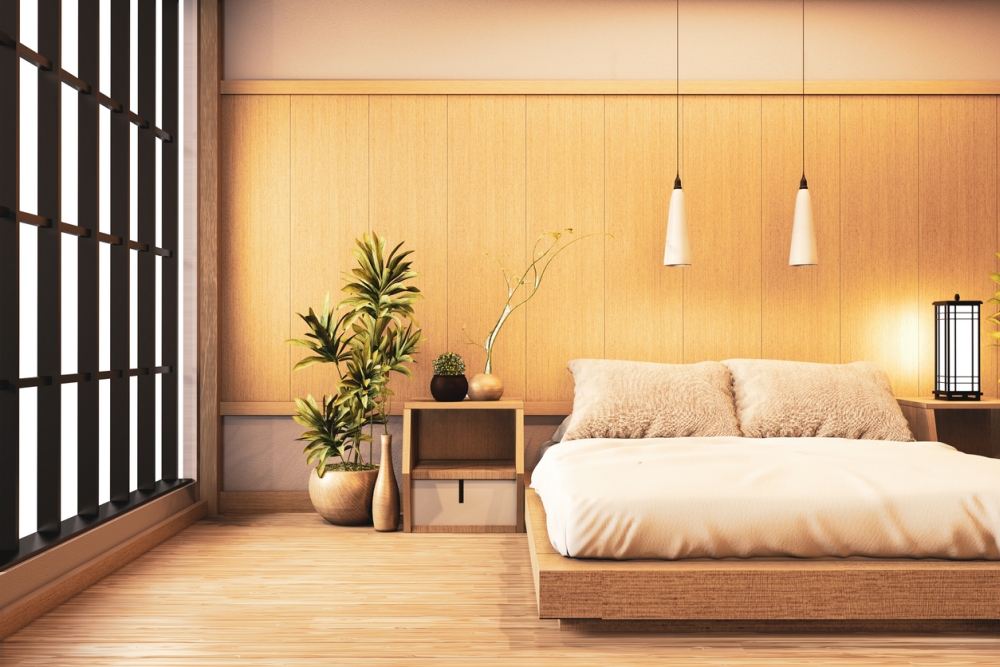Introduction to Japanese Bedroom Aesthetics
Step into the serene world of Japanese bedroom decor, where simplicity meets elegance. From my travels through Japan, I’ve been captivated by how Japanese homes blend functionality with minimalist beauty. This guide aims to help you recreate that tranquil atmosphere in your own bedroom, emphasizing natural materials, soft hues, and thoughtful design.
The Principles Behind Japanese Decor
1. Minimalism
Japanese decor embraces minimalism, focusing on fewer pieces that are functional and visually appealing. This not only creates a tidy space but also promotes mental clarity.
2. Nature-Inspired Elements
Natural materials like wood, bamboo, and silk are often used in Japanese homes. Incorporating these elements brings a sense of calm and connection to nature.
3. Balance and Harmony
Balance is crucial in Japanese decor. Each piece should complement the others, contributing to a harmonious environment that feels inviting and serene.
Key Elements of Japanese Bedroom Decor
1. Color Palette
The color palette in Japanese bedrooms tends to be neutral and earthy. Soft whites, gentle browns, and muted greens create a relaxing backdrop. Here’s a quick comparison of color schemes:
| Color | Effect | Best For |
|---|---|---|
| Soft White | Brightens space | Small bedrooms |
| Warm Beige | Creates coziness | Traditional settings |
| Muted Green | Promotes calm | Nature-themed rooms |
2. Furniture Choices
Japanese furniture is characterized by low profiles and clean lines. Futons, tatami mats, and low tables are staples. When selecting furniture, consider:
- Low-profile beds or futons
- Simple wooden dressers
- Minimalist seating options
3. Textiles and Patterns
Textiles play a significant role in Japanese decor. Look for fabrics that feature traditional patterns like asanoha (hemp leaf) or seigaiha (blue ocean waves). These patterns add visual interest while remaining understated.
4. Lighting
Natural light is highly valued in Japanese design. Utilize sheer curtains to allow light in while maintaining privacy. For artificial lighting, consider paper lanterns or soft, warm LED lights to enhance the ambiance.

Creating Your Japanese-Inspired Bedroom
Step 1: Declutter Your Space
Start by removing unnecessary items. A clean slate will allow you to focus on essential elements that bring joy and peace.
Step 2: Choose a Color Scheme
Select a color scheme that resonates with you but stays true to Japanese aesthetics. Soft, natural colors work best to create a soothing atmosphere.

Step 3: Invest in Quality Furniture
Look for low-profile furniture that reflects simplicity and functionality. Quality wood pieces not only enhance the decor but also add a touch of warmth.
Step 4: Incorporate Nature
Bring in plants or use nature-inspired decor to create a connection with the outdoors. Bamboo or cherry blossom motifs can add a lovely touch.

Step 5: Mindful Decor
Choose decor items that have personal meaning. This could be a piece of art, a favorite book, or a family photo. The key is to keep it simple yet significant.
Pros and Cons of Japanese Bedroom Decor
Pros
- Creates a serene and calming environment
- Encourages organization and minimalism
- Promotes a connection with nature

Cons
- May require a shift in mindset for those used to clutter
- Can be costly if investing in quality materials
- Limited options for those seeking a more vibrant aesthetic
Common FAQs About Japan Bedroom Decor
What are the main characteristics of Japanese bedroom decor?
Japanese bedroom decor is defined by minimalism, natural materials, and a harmonious color palette, focusing on creating a calming and functional space.

How can I incorporate traditional Japanese elements into my bedroom?
Consider using tatami mats, futons, shoji screens, and traditional Japanese textiles to add authenticity to your space.
Are there specific plants that are favored in Japanese decor?
Yes, plants such as bonsai trees, bamboo, and cherry blossoms are commonly used in Japanese decor to evoke a sense of natural beauty.

Can I mix Japanese decor with other styles?
Absolutely! Mixing Japanese decor with other styles, like modern or Scandinavian, can create a unique and personalized space. Just ensure that the pieces complement each other.